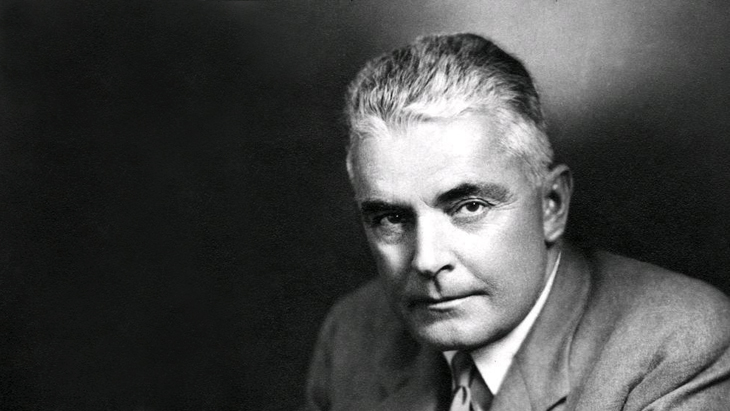Considered the father of modern hypnotherapy: who is Milton Erickson?
An American clinical psychiatrist who specializes in influencing people in daily life by suggestion only by talking about the weather.

Think of a man! This person, named Milton Erickson, was confined to bed as a result of a stroke, and never accepted the doctor's words "he can't get up in the morning". He is a man who embraced life with faith, saying, 'If I can't get out in the morning, let me see the sunset at least. Milton Erickson, whose name we often hear in the hypnosis community today, is a master in indirect suggestion. Milton Erickson is a groundbreaking expert in the world of Hypnosis, who motivated him to walk when he was paralyzed and later taught him to walk again with an indirect suggestion.
Milton Hyland Erickson (5 December 1901 – 25 March 1980) was an American psychiatrist and psychologist specializing in medical hypnosis and family therapy. He was founding president of the American Society for Clinical Hypnosis and a fellow of the American Psychiatric Association, the American Psychological Association, and the American Psychopathological Association.
Milton Erickson, who studied Medicine and Psychology, is known for his 'Suggestion patterns', that is, his 'stories'. Milton Erickson, who taught the practice of conversational hypnosis, also called indirect hypnosis, to the world today, has interviewed around 30 000 people in his clinic. People would come to him to hear his stories, and then they would get better. Even many people who knew him realized much later that Milton Erickson had also hypnotized them.
Consider a scenario like this:
A five-year-old boy carefully carries a glass of milk to the table. The boy's father said, "Don't pour it!" he warns sternly. The child looks up at the father, while he staggers and drops the glass, and milk spills everywhere. At that time, the angry father shouts: “Didn't I tell you not to spill it!!! Clumsy! I told you! Incompetent! You will never learn!”
Although the purpose here is not to hypnotize the child, that is, it is not done consciously, this is an example of hypnosis; The strong and authoritative voice (the father) instilled a Post-Hypnotic Suggestion directly in the child, creating a state of hypnosis (trance) through indirect suggestion (“don't spill”) in the child (“Clumsy! Clumsy! You will never learn!”).
Reframed by Milton Erickson, hypnosis is outside the known and pushing boundaries. This 'story-telling' work, which did not fit into any systematics, was so effective that there are many studies originating from it today. Hundreds of books have been written about him, and institutes have been established in his name in many places.
Milton Erickson is known in the USA as Mr. Hypnosis and is known as the father of Medical Hypnosis. In his hypnosis, there is no concept of hypnosis practiced by an authoritative hypnotist. In his hypnosis, we can say that the other person activates their own inner dynamics and inner strength. Rather, it implements a personalized program and produces stories suitable for the person.
Milton Erickson is so famous in the world of hypnosis that today hypnosis called Ericksonian Hypnosis has entered the literature. The hypnotic suggestions that affect the person indirectly, have such a strong effect that the symptoms and discomfort of the person disappear. The fact that he has developed such a strong suggestion pattern style makes him indispensable.
Life story
Milton Erickson was born in 1901 in Phoenix, Arizona. At this time, hypnosis was still considered an unusual technique or recreational spectacle. But Erickson made hypnosis a viable therapeutic tool.
Erickson's life has not been easy. His family was lower-class farmers and Erickson had some health problems. He started speaking at the age of 4. He was diagnosed with dyslexia at that age. He was also colorblind and had tone deafness.
At the age of 17, his entire body was paralyzed due to polio. He could only move his eyes. Although the doctors thought he would not recover, his family believed him. Erickson thus focused on the development of his bodily perception.
We can say that Erickson became a great observer thanks to his illness. Even though he was sick, he took care to be aware of everything that was going on around him. In this way, he was able to explore the features of body language in great detail. He learned to walk again by carefully observing his younger sister (whose first steps he witnessed).
Despite his hardships, Erickson worked and became a doctor and psychologist. In his day he analyzed Clark L. Hull's theory of suggestibility. He stated that he was very impressed by this theory and that he started to research hypnosis and everything related to hypnosis.
Milton Erickson gradually began to criticize Hull's practices. He also studied the works of Sigmund Freud but disagreed with his basic approaches. He thought of hypnosis as a therapeutic tool. Still, he believed that the patient should play a more active role.
